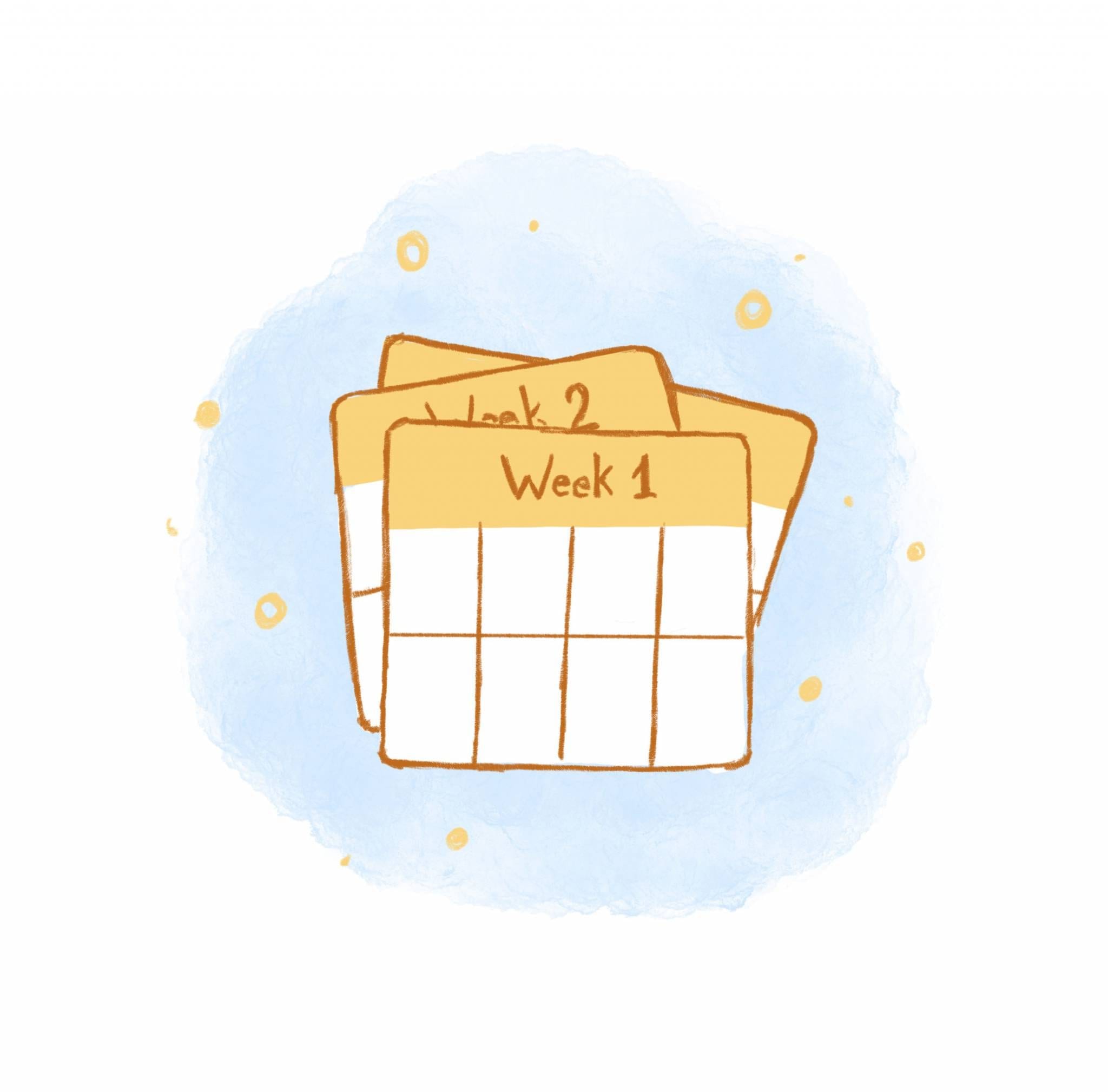

Once you reach adulthood, people often start to think long and hard about what happiness truly means. You may ask yourself if you truly feel happy most day and if not, why that is. If you’re overwhelmed by your schedule and the pressures of work or other demands, odds are you don’t feel as great most days.
However, according to research and studies, there are 7 scientific happiness factors that can contribute to how happy you feel on a regular basis. The problem? Most people don’t focus on all 7 or maybe feel they don’t have the time or capacity to do so.
This is where effectively planning your calendar can help. Here are some of my top ideas to help you work the 7 scientific happiness factors into your daily routine.
Be Successful and Goal Orientated in Your Career
Most of us spend the bulk of our time working and sleeping each day. I can only hope that you feel happy and peaceful when you sleep, but when it comes to working this may not always be the case. It’s important to dig deep and determine what your passionate about in terms of work and what makes you feel successful and valued.
If you find that you’re not feeling good at work, see what you can do to change that or consider changing your career path. This may involve beefing up your resume and taking 15 minutes each day to apply for new positions. Or, it could mean applying for a promotion or a different department with your current employer.
It could mean blocking off an hour each day to work on a side hustle or side business. Or, it could mean setting goals for your month or quarter and doing a little work each day to achieve them. For example, if you’re self-employed and have a dream client in mind, you can map out the action steps you’ll take to work with that client.
These don’t have to be big things, but instead can be small action steps that can be completed quickly but lead up to a bigger result. Put this on your calendar, be productive, and track your progress.
Make Sure You’re Earning Your Worth
Money only makes people feel happy up to a certain degree. In this case, that’s $75,000 per year. Once you start earing more than that, money won’t really affect your happiness level. However, it’s still important to make sure you’re earning what you’re worth.
Assess each project or task you’re working on and make sure you feel comfortable with what you’re being compensated. Trust me, if you don’t do this it can come back to bite you. I’ve done many projects in the past that I was underpaid for and I often procrastinated and started to resent the work.
Don’t put yourself in that position. Do some light research to compare salary standards for your current position and don’t be afraid to ask for what you’re worth. Get into the habit of building a portfolio of all your successful projects and achievements on the job which will come in handy when you try to negotiate for higher pay.
Be Yourself
Stop trying too hard to be who other people want you to be. Of course, you have to be professional in a professional setting but don’t waste time and money on hobbies and activities that you don’t like.
Don’t say you’re going to get up early and go to the gym if you hate waking up early. Workout in the evening instead. Don’t go to the places or events you don’t want to go to. Look at your existing calendar and make note of all the things you feel excited about. Make sure this makes up the bulk of your calendar and that you’re staying true to yourself.
Prioritize Your Health
Being healthy can lead to more happiness overall. Create an exercise routine that best suits you and determine which foods will be good for your body and make you feel good.
I try not to eat carbs in the evening because it makes me feel sluggish and bad. I don’t necessarily like to exercise but there are certain workouts I do enjoy doing to I gravitate toward those. Another way to prioritize yourself is to make sure you schedule and health screenings and make all your medical appointments. You can also consider talking to a therapist from time-to-time or checking out a therapy app like TalkSpace to take care of your mental health.
Start a Gratitude List to Prioritize Positive Emotions
Happier people often put positive emotions over negative emotions. This is one of the most important scientific happiness factors and it’s easy to implement this. It’s all about your thoughts and perspective. When you look at almost any situation, you can approach it with a positive mindset, or a negative mindset.
To get into the habit of prioritizing positive emotions, start a gratitude list. You can take just 5 to 10 minutes to journal each morning and jot down everything you’re grateful for large or small. This helps set the tone for your day and trains your brain to look for the positive aspects of your day and your life.
Stay in Touch With Friends and Family
Social media can be a great way to keep in touch with loved ones but it can also make you feel isolated. Think about all the friends or followers you have online then honestly consider how many people you’d feel comfortable asking for a favor. If your answer is not too many, it’s time to work on improving your relationships with others.
Don’t allow yourself to get so busy that you don’t have time to network, build relationships, and spend time with friends. Check-in on distant loved ones with phone calls or texts, invite a friend to go walking or exercise with you and work small interactions into your schedule.
Become Better at Time Management
We all have the same 24 hours each day. Becoming better at time management will only help optimize your schedule and make the most of the time you have. Make sure you narrow down the most productive ways to spend your time and setting milestones to hit each day.
For example, if you know you have to complete three important tasks each day, achieving this can make you feel better about your time management. When it comes to work-life balance, I don’t really think that the perfect balance is possible. There will be moments where work dominates and other moments where your personal life takes over. However, becoming good at managing time can help you feel more successful and happier at the end of the day.
When you break down the 7 scientific happiness factors you’ll see that, with a little time management and dedication, you can work them into your daily schedule if not your weekly routine.











Choncé Maddox
Choncé Maddox is a professional writer who recently left her job in the web design industry to produce killer content and manage her own writing business full time. She is passionate about helping entrepreneurs be more productive and create a life they love by doing fulfilling work. On the side, she runs a podcast and blogs about getting out of debt at MyDebtEpiphany.com.